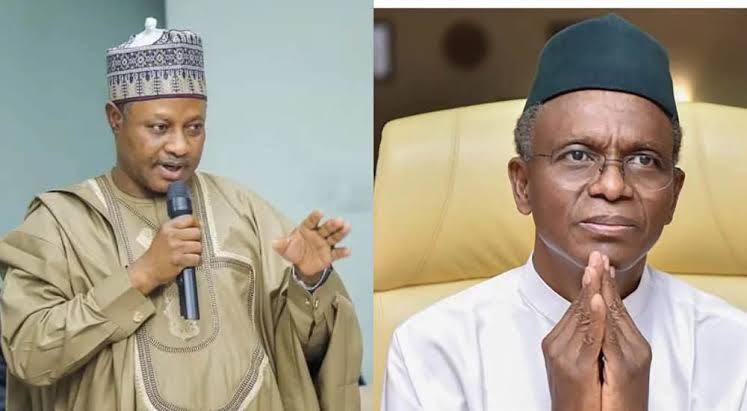
News
Kaduna Governor: I Inherited $587m, N85bn Debt From El-rufai

KADUNA, (iexclusivenews) – a region with a rich history and diverse culture, has faced significant financial challenges. Governor Uba Sani, who assumed office on May 29, 2023, inherited a staggering debt burden from his predecessor.
Let’s delve into the details of this financial predicament and explore the governor’s commitment to steering the state toward progress and sustainable development.

The Burden of Debt
Governor Sani revealed that the state inherited a total debt of $587 million and N85 billion. Additionally, there were 115 contract liabilities left behind by the previous administration.
These financial obligations posed a formidable obstacle to the state’s economic stability and growth.
READ MORE:

INEC Disowns Labour Party’s National Convention In Anambra State
Ransom Paid For Abducted Kaduna Schoolchildren, Ex-Intelligence Chief Reveals
Struggling to Pay Salaries
Despite the daunting debt load, Governor Sani’s administration has refrained from borrowing additional funds in the past nine months.
However, the situation remains dire. The state’s Federal Allocation is insufficient to cover essential expenses, including salaries for civil servants.
With a monthly wage bill of N5.2 billion, the available funds fall short.
Exchange Rate Woes
The fluctuating exchange rate compounds the financial strain.
Governor Sani emphasized that the state is paying back almost triple the amount borrowed during the tenure of former Governor Nasir El-Rufai.
In March alone, N7 billion from the Federal Allocation was allocated to debt servicing.
Focused Priorities
Governor Sani’s administration has outlined key priority areas to address the state’s challenges:
1. Safety and Security: The state has made significant strides in revamping its security apparatus. The recruitment of 7,000 additional personnel for the state Vigilance Service, along with the acquisition of over 100 operational vehicles and 100 motorcycles, demonstrates the commitment to safeguarding citizens and maintaining peace.
2. Education: Collaborating with Kuwait, the government aims to reduce the number of out-of-school children in Kaduna by 200,000. The establishment of skills and vocational cities further addresses skills deficits and promotes education.
3. Affordable Housing: Recognizing the importance of housing, the administration seeks to provide affordable housing options for residents. This initiative contributes to inclusive development and improves living standards.
Rebuilding Trust and Fostering Harmony
Governor Sani’s vision extends beyond immediate challenges. He aspires to make rural living enjoyable and transform Kaduna into a premier business hub. By rebuilding trust and fostering peace, the state can overcome obstacles and achieve sustainable development.
Collective Efforts for Progress
Former Chief of Defence Staff, Gen. Martins Luther Agwai (retd.), emphasizes the need for concerted efforts to address security challenges. Without peace and security, meaningful development remains elusive.
The Emir of Zazzau, Ahmad Bamali, shares optimism, believing that Governor Sani can steer the state’s economy toward effective development despite the hurdles.
In conclusion, Kaduna State stands at a critical juncture, and Governor Uba Sani’s commitment to prudent financial management and strategic priorities will shape its future.
As the state navigates challenges, the collective efforts of its leaders and citizens will determine its path to progress and prosperity.




























